Nairobi Bound: A Comprehensive Guide for Americans Starting a New Life in Kenya's Capital
Posted on May 24, 2023. Cowritten with a friend. Updated as I learn more.
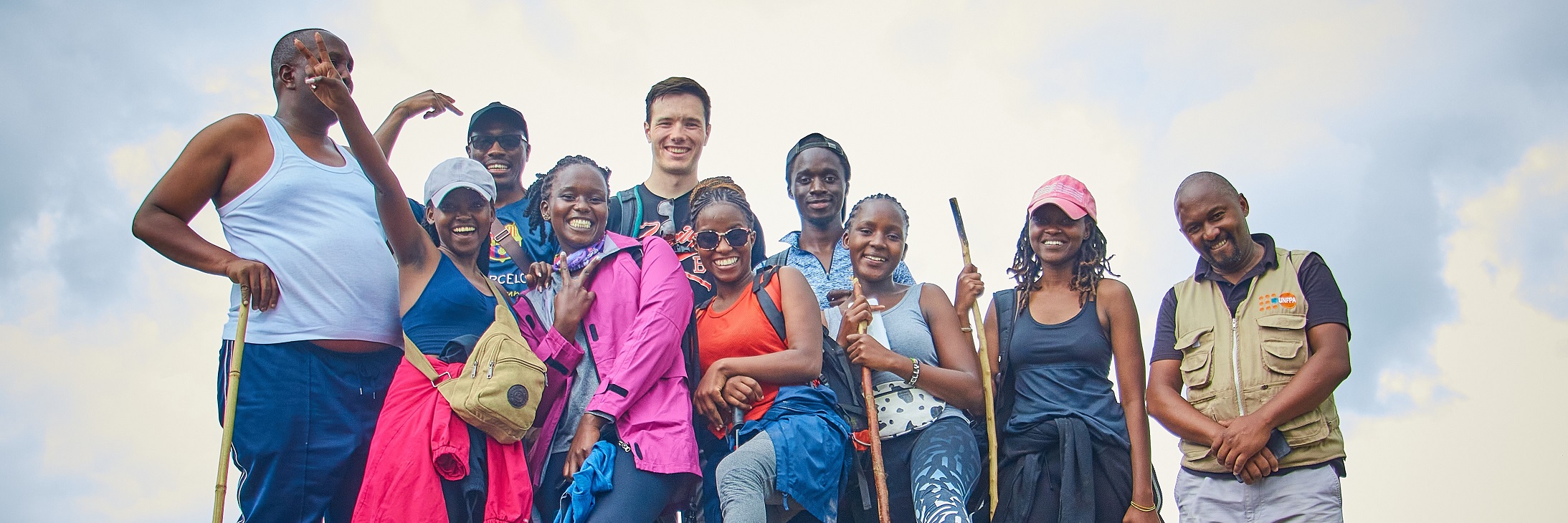
Contents
Visa and Work Permit
The Kenyan work permit system is frustrating and strange sometimes, and always very slow. You will need to progress through three levels to get fully permitted to work in Kenya. In reverse order:
- The end goal for most foreigners who want to live in Kenya is a Work Permit. This lasts for two years, is renewable, and costs something like $2000. You can apply for them through Kenya's electronic Foreign Nationals Service (eFNS) portal, which is also the website used to apply for your Special Pass. Their server is frequently overwhelmed, so if your browser throws an error while trying to connect, just try again later.
- To apply for a work permit, one must already be physically in Kenya on a Special Pass. This is an intermediate permit that exists only as bureaucratic nonsense. Basically, there's a rule that you can't apply for a Work Permit while in the country on a Tourist Visa, so, here, boom, an intermediate step to make it legal. Special Passes cost around $450 and are valid for three months. However, they often need to be renewed because Work Permit application processing takes so long. Weirdly, you can only be in Kenya on a Special Pass for 6 months out of any 12. This is all such annoying trivia on which to waste brain space, but it is what it is. At least it's more humane than the U.S. immigration system.
- Finally, to enter the country in the first place, you need an electronic Travel Authorization (eTA), which is a tourist visa in everything but name. It used to be possible to get these on arrival, but as part of a COVID-related rule change, visitors must now apply for it online ahead of time. The cost is around $40 for a basic, single-entry authorization. There are a lot of scam website out there, so make sure you use the official Electronic Travel Authorization System.
One of the many items you will need in order to apply for a Special Pass and Work Permit is a "clearance letter from relevant institutions." For immigrants from the US, this corresponds to a "criminal history request form" from a US police department. Before you leave the US, you'll need to call your local non-emergency police phone number, usually available on your city's website, and ask where you can get a copy of your criminal history. They will likely direct you to a particular local police station. You'll travel there, fill out and submit a form, pay a fee, and then return later to pick up the printed results. You can scan the returned results page and submit that as your "clearance letter."
Housing
Facebook groups are a great tool to find housing. Avoid the Kenya Craigslist.
Neighborhoods I would recommend: Parklands, Westlands, Kilimani, Lavington, Kilileshwa, New Kitisuru, and Spring Valley. These are nice, affordable compared to many U.S. cities, and near fun nightlife. For example, I live in Spring Valley in a mansion in a gated community with three flatmates. The rent is $830 per month and includes a gardener, house help that comes three times a week, a backup generator for load shedding, and basic utilities. It's by far the nicest place I've ever lived for one of the cheapest rents.
There are even nicer neighborhoods in Nairobi: Karen, Runda, Muthaiga, and Gigiri. They tend to be further away from the city center and thus quieter, more like extravagant suburbs. There are also plenty of less expensive places like Githurai and Mitini if you like living in denser mixed-use/apartment buildings.
Water, Electricity, and Internet
Water
Tap water in Kenya is not safe to drink, but bathing and brushing teeth with it is fine. My housemates and I get refillable 20-liter drinking water dispensers delivered to our house from Jibu, and we like it.
Electricity
Kenya's electrical grid connects more than half of the country's residents, including almost everywhere in Nairobi, and the majority of energy is renewable, coming primarily from hydroelectric and geothermal sources.
Outlets are IEC Type G, the same as in the U.K., and provide a standard voltage of 240 V at 50 Hz. Check your appliances' power before you bring them to Kenya, especially high-power ones like blenders or hair dryers, to ensure they can operate at 240 V at 50 Hz. Inexpensive adapters are available at many stores, including large grocery stores, but they don't necessarily transform the voltage and frequency.
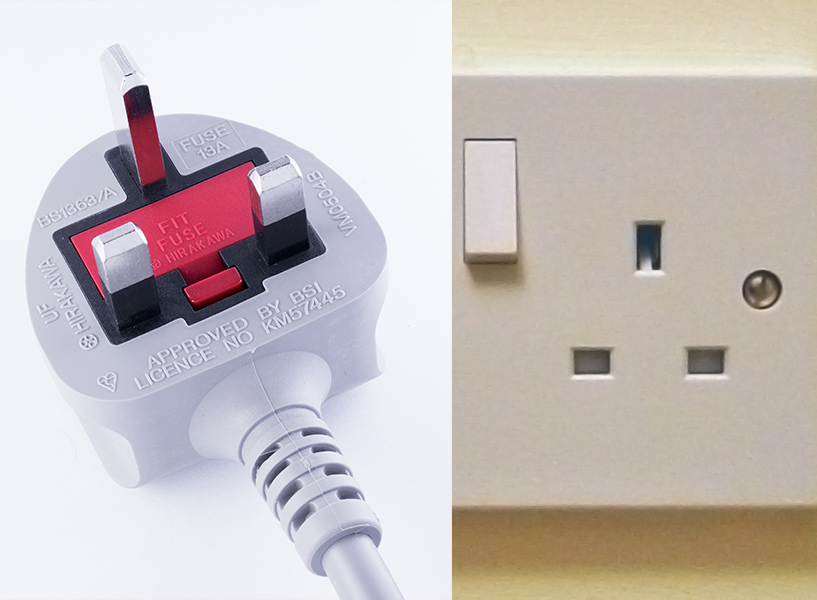
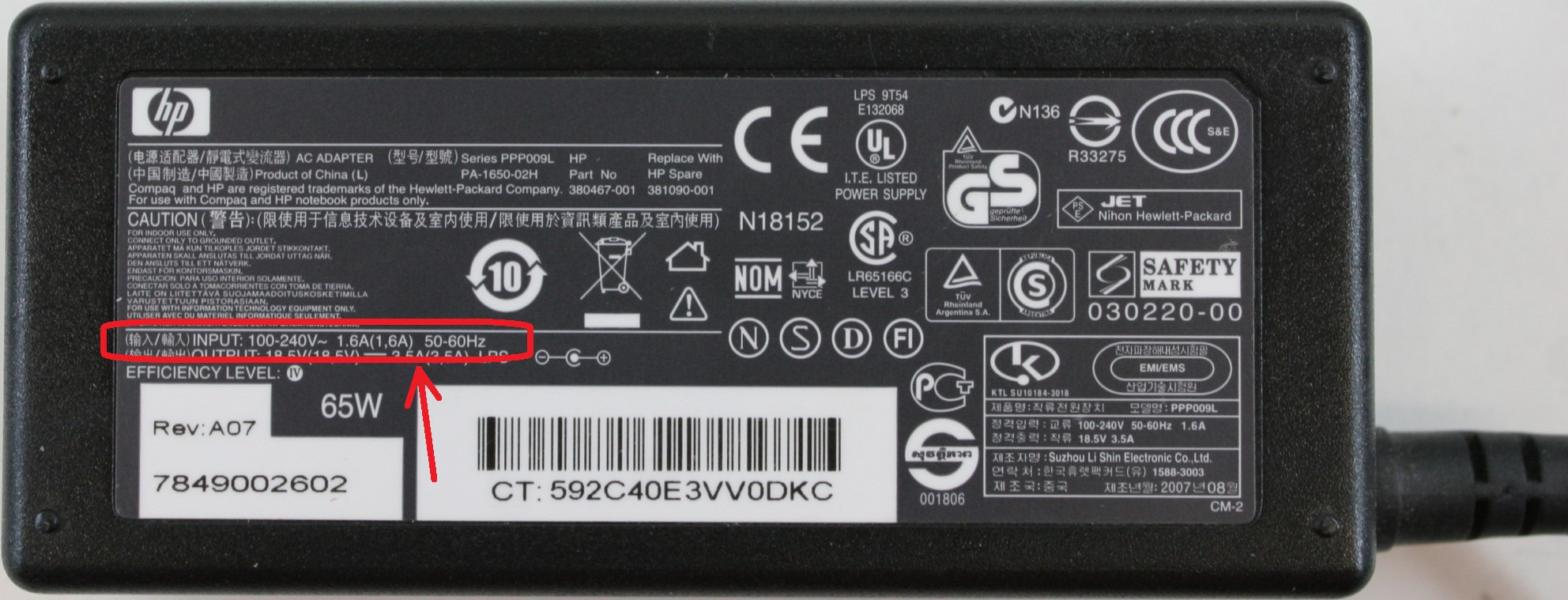
The Nairobi grid is decently reliable. Depending on where you are in the city, power outages can occur for a few hours every few days. Many nicer establishments and homes have backup diesel generators that kick on during power cuts.
Internet
In Nairobi, internet speed rivals that of US cities. Nonetheless, many Africans in the age of COVID prefer voice calls with no video.
Because most houses are built with thick, cinderblock walls, indoor Wi-Fi networks lack the range that you may be used to in wood-framed US homes. Depending on where you live, you may want to buy multiple routers or repeaters and build a mesh network in your home.
I'll discuss cellular network in a later section, but suffice to say that it is affordable and decently reliable in most cities and towns in Kenya.
Food
Ordering food in big cities is easy. Jumia Food and Glovo are the main options in Nairobi. They work the same way Uber Eats does in the U.S.
Nairobi has ridiculously nice grocery stores. The biggest-box option is Carrefour, and smaller-but-still-nice options are Zucchini, Chandarana, and Greenspoon. Your selection, like anywhere, will depend mostly on whatever is closest to wherever you live. Grocery delivery is ubiquitous thanks to low delivery prices. I typically use Chandarana, which has a WhatsApp number to which I text my grocery lists.
Kenyan corn and peanut products have a troubling history of aflatoxin contamination. For this reason, I try to buy imported peanut butter when I can. Skippy brand is available in most large grocery stores.
Don't discount outdoor markets if you're close enough to one. There's a small one near my neighborhood that's great for some fruits and veggies.
As a cuisine, Kenyan food is limited but delicious. Most meals consist of a carbohydrate like ugali, a thick maize porridge used as an edible utensil; a vegetable like sukuma wiki, related to collard greens; and a protein like beans or nyama choma, barbecued meat. Seasonings are mild and are used to highlight the inherent flavor of the meat or vegetables. It is difficult, but not impossible, to be vegetarian. There are many Indian restaurants.
Nairobi has a ton of good restaurants. Here is an incomplete list of my favorites:
- Abyssinia: Ethiopian
- Fogo Gaucho: Brazilian steakhouse serving nyama choma
- Sarit Center food court: a mall food court with an open roof and food and beer
- Crafty Chameleon: beer garden
- K'Osewe Ranalo: cafeteria-style Kenyan food in downtown with open-roof seating
- Havana: Mexican-Kenyan fusion with creative tacos
- Pallet Cafe: my favorite coworking cafe
- Chinatown
- Cultiva: maybe the tastiest restaurant in Nairobi
- Yolo Ice Cream: popular dessert hangout with massive portions
- I eat lunch almost every day at a kibanda, or street food stall, down the street from my house. I get a mix of beans, cabbage, hot peppers, cut chapati, and sliced avocado with a cup of chai for about $1.
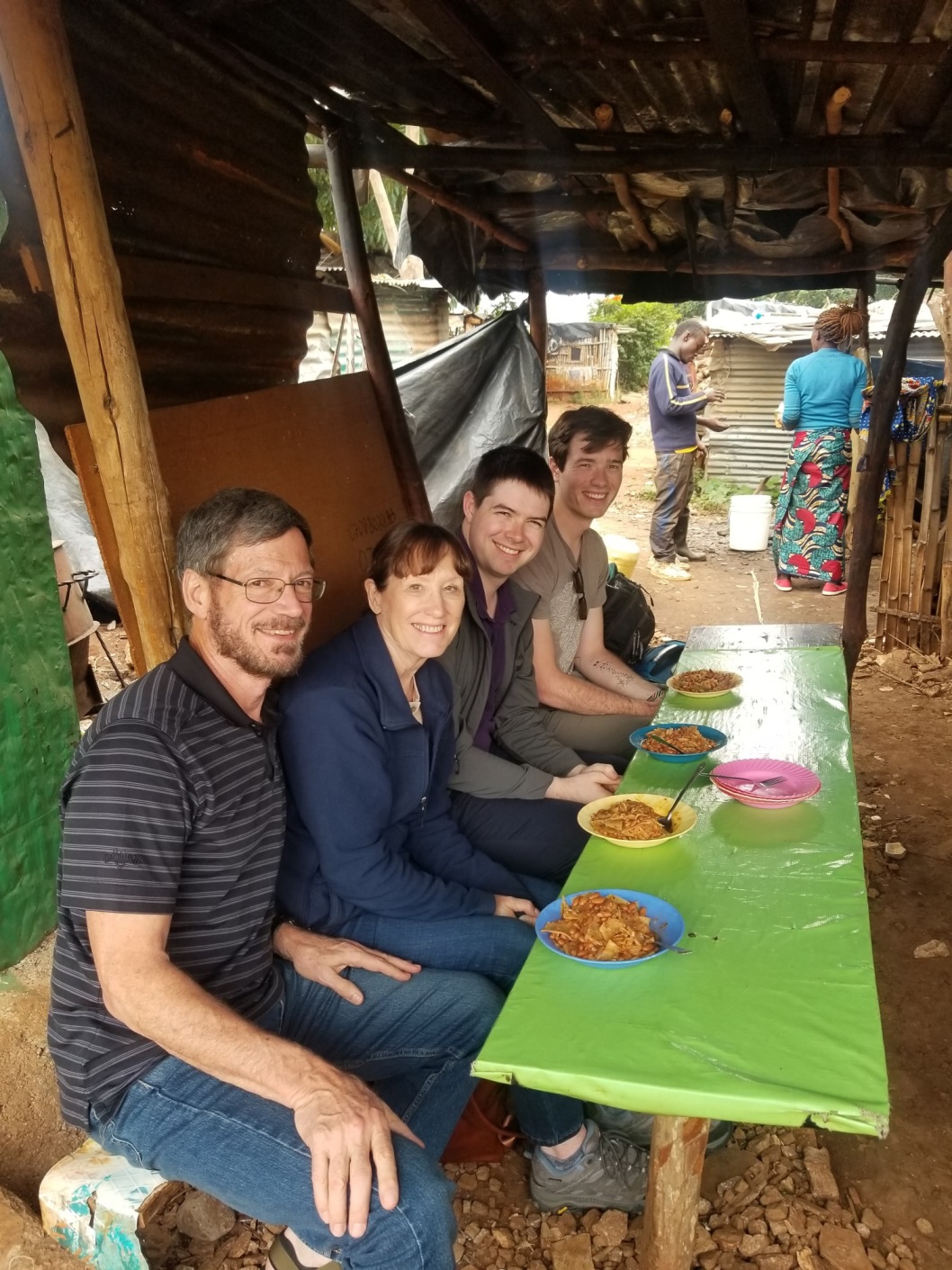
Nairobi also has several good bars and clubs:
- Re\Volver: speakeasy-style bar
- Hero: Kenyan sushi and cocktails with a great view
- Alchemist: popular nightclub with an open-roof dance floor, DJs playing a mix of Afrobeats and Western music, and good food and drinks
- Muze: popular nightclub
- Yejoka Garden: hookah bar with good Ethiopian food and garden seating
Language and Social Etiquette
Kenya was a British colony and has a diverse population without a unifying indigenous language. Swahili, "Kiswahili" in Swahili, and English, "Kiingereza," play that role.
In Kenya, the local language of the coastal and mostly Tanzanian Swahili tribe, Kiswahili, ended up a lingua franca for most, but not all, of the country. Certainly, no other language besides English has nearly the same reach. However, you will often meet people who aren't good at it when you're in rural areas, especially children who haven't started learning it in school yet, or lots of people in northern Kenya who are just so far away that they don't care. Major tribal languages that you should know exist are Kikuyu, for the Kikuyu tribe around Nairobi and central Kenya; Dholuo, for the Luo tribe around Lake Victoria; Kikamba, for the Kamba tribe; and Maa, for the Maasai tribe.
I began learning Kiswahili using Duo Lingo. The app teaches Tanzanian and Coastal Kenyan Swahili, sometimes called "Kiswahili Sanifu" (Standard Swahili), which is more formal than the Swahili spoken in most of Kenya. Nonetheless, the lessons were a great start. Some foreigners hire personal teachers once they move to Kenya to help them develop their language skills, especially with the more colloquial Sheng spoken in Nairobi.
It seems like almost every conversation begins, or can nicely begin, with "How are you?" The most popular Kiswahili versions of that are:
| Kiswahili | Literal Translation | Positive Response |
|---|---|---|
| Habari | News | Mzuri |
| Habari ya _* | News of the _* | Mzuri |
| Habari gani | What is the news? | Mzuri |
| Habari yako/zako | Your (singular) news | Mzuri |
| Habari yenu/zenu | Y'all's news | Mzuri |
| Mambo (vipi) | (How are) things? | Poa |
| Sasa | Now | Poa |
| Umeshindaje | How did you win? | Mzuri |
| Umeshinda mzuri | Did you win well? | Mzuri/Ndio |
| Umelalaje | How did you sleep? | Mzuri |
| Umeamkaje | How did you wake up? | Mzuri |
| Jambo/Hujambo | Hello (to one person) | Sijambo |
| Jambo/Hamjambo | Hello (to a group) | Hatujambo |
| Nyaje | Come on | Poa |
| Uko aje | How are you? | Poa |
"Mzuri" (good/well) and "poa" (cool) are occasionally used interchangeably and can be substituted with "salama" (peaceful) or "fiti" (fit). "Jambo" is only common in Tanzanian and Coastal Kiswahili. Where Kiswahili Sanifu is spoken, you might hear "Shikamoo" (I respect you) followed by "Marahaba" (I accept your respect) in formal settings or between a young person and someone older than them.
If all of that seems overwhelming, the English "how are you" is always fine.
Some other useful words and phrases:
| English | Kiswahili | Pronunciation |
|---|---|---|
| Where is the bathroom? | Choo iko wapi? | Choh-oh ee-koh wa-pee |
| I would like to order… | Nilete… | Nee-lay-tay |
| Please | Tafadhali | Tah-fad-ha-lee |
| Sorry | Pole | Pole-eh |
| Thank you | Asante | Ah-san-tay |
| How much/many? | Ngapi? | Nn-gah-pee |
| It's okay | Iko sawa | Ee-koh sah-wah |
| I don't know | Sijui | See-joo-ee |
| White person | Mzungu | Mm-zoong-goo |
| You | Wewe | Way-way |
Other relevant cultural points of interest include:
- When texting or calling, always start with a pleasantry like "How are you?" and wait for a response. "There is no hurry in Africa," so take a minute to exchange greetings before getting to the point.
- After you summon a ride using a rideshare app, it is common for the driver to call you to ask where you are and where you're going despite the fact that they already have all of that information on their phones. You can use the following script for these conversations: "Hello. I'm at [your location]. I'm going to [your destination]. Are you coming?"
- Phone calls here end like they do in the movies, where somebody just decides that it's done and hangs up without saying goodbye.
- Tipping is only common in nice restaurants and in the tourism industry, and the standard rate is 10%.
- Respect for elders is highly valued in Kenyan culture. It is customary to greet and show deference to older individuals by using the appropriate titles, such as "Mzee" for older men and "Mama" for older women.
- It is common for social gatherings or meetings to start later than scheduled, sometimes by an hour or more.
- Nairobi has a diverse range of styles and dress codes, influenced by both traditional and modern fashion. Start by dressing modestly and find your own style. For men, I recommend buying canvas pants to stay cool without showing your legs.
- Kenyans tend to use indirect communication. Be mindful that non-positive responses can often mean "no."
- When invited to a Kenyan home for a meal, it is customary to bring a small gift, such as flowers or a dessert. Wash your hands before eating, as many traditional meals in Kenya are enjoyed without utensils. Observe the host's actions and follow their lead in terms of seating arrangements and table manners.
- Respect personal space and maintain an appropriate physical distance when interacting with others. Public displays of affection are generally more reserved in Kenyan culture.
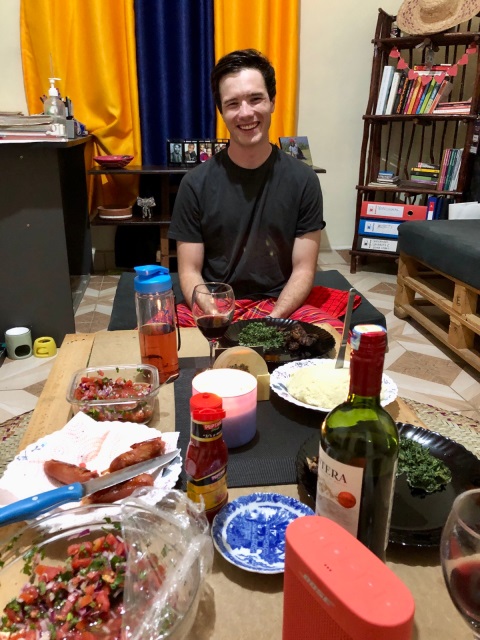
Currency and Money
Finance Management
A lot of foreigners have the combination of a Schwab bank account and a Chase Sapphire Reserve credit card. Schwab reimburses all ATM fees. The CSR has a hefty fee, but there is a great reimbursement of some amount of travel costs that can quickly make up for it, plus airport lounge access all over the world, and no international transaction fees. I do all my banking with Chase, which has similar benefits to Schwab.
Local Currency
Kenya's currency is the shilling, abbreviated KES or KSH, a holdover from British colonial days. At the time of writing, the exchange rate is about 135 KES/USD, meaning about 75% of the price in shillings is the price in U.S. cents. That said, the value of the shilling relative to the dollar has been changing quickly over the past few years, so check online for the current exchange rate.
You do not need to worry about currency black markets in Kenya; the central bank does not peg the value of the shilling to any other currency. In Kenya, the best exchange rates you'll find are in forex counters in malls, and they won't be much better than those at the airport. This will not always be the case for other countries in Africa, so be sure to research central bank and parallel market exchange rates before traveling outside of Kenya. For more information, read up on the impossible trinity.
How to Pay: Cash, Credit, and Mobile Money
In Kenya, you can usually pay with a credit card as long as you're in a nice store, but cash and mobile money are more widely accepted.
"Mobile money," branded M-Pesa, is a system that grew out of organic use of phone credit, known here as "airtime," as currency in the earlier days of cell phone use in Africa. The telecommunications companies, or "telcos," especially Kenya's biggest one, Safaricom, formalized that system into something similar to, and often regulated like, a bank. Users can go to an agent and give them cash, and then their M-Pesa balance is correspondingly increased, just like depositing at a bank. There are three ways to pay send money to someone with M-Pesa, all accessible using the *334# USSD menu or the M-Pesa app:
- Send Money: You can send money directly to another person knowing only their phone number.
- Lipa na M-Pesa: This means "pay with M-Pesa," intended for purchasing things from a business. There are three flavors. For a situation where the merchant doesn't care who you are, like a grocery store, you usually use the Buy Goods option and pay to a Till Number. For a situation where the merchant does care who you are and wants your payment to reflect on a specific account, you usually use the Pay Bill option, and then specify the Paybill Number and your Account Number. As an example, when a customer wants to pay Renewvia, they pay our Paybill Number and include the account number that we assign them. Sometimes, small shops will use Pochi la Biashara, "wallet of business," which operates just like Send Money, but allows the seller to keep their personal and business M-Pesa accounts separate.
- Withdraw: This is the inverse of depositing money. For a fee, you can also withdraw money. Some M-Pesa agents who provide withdrawal services also have unrelated shops selling other stuff too, so sometimes, instead of paying them through a Paybill or Till, you withdraw cash to them. It's not the intended use case, but it all works out.
If you find all those words confusing, their branding isn't top notch, but there is some logic to all of those options, if not their naming. When you pay for something using M-Pesa, the seller will tell you which of the above methods to use.
To get M-Pesa, go to a Safaricom store building with your physical passport, not a soft copy, and pay $1 for a Safaricom SIM card. When you insert the SIM card into your phone, you will need to unlock it with a special, four-digit SIM PIN provided by Safaricom on the plastic case containing the SIM card. Doing so will install an app on your phone labeled "Safaricom" or "SIM Toolkit." That app will allow you to activate your M-Pesa account and, optionally, deactivate your SIM PIN so you don't have to enter it whenever you turn on your phone.
There are many apps that can send money from your U.S. accounts to your M-Pesa account. I use Sendwave for instant transfers and Remitly for delayed transfers with better exchange rates.
Taxes
The following is not tax advice. This is just my understanding as an uneducated person.
It's a common myth that U.S. citizens always have to pay U.S. income tax even if they work abroad. The truth is more complicated, and thankfully better, than that. If you really live out of the U.S., you don't have to pay U.S. Federal Income Tax. You still contribute to FICA/Medicare/Medicaid. You just have to declare that you meet one of the following two conditions, and then your company's U.S. accountant won't withhold income tax from your monthly paychecks, and you won't owe any of it come April 15:
- Physical presence: if you're out of the U.S. for 330 days in a year
- Bona fide residency: it's fuzzier, but basically if you can show that you really do live abroad, like with a lease and utility payments, for an uninterrupted period that includes an entire tax year
Unless you move from the U.S. to Kenya during January and don't leave for the entire year, you probably won't be able to fulfill either of these requirements for your first year in Kenya, so you will likely have to pay U.S. income taxes for your first year. That said, you won't have to pay Kenyan income taxes on any income earned before you get your work permit, so you should be able to avoid double taxation.
Unfortunately, the Kenyan income tax brackets are steeper than in the U.S.: at the time of writing, the marginal tax rate in Kenya is 30% and applies to all income over $2,900 annually. So, the good news is you won't be double-taxed like a lot of the internet says, but the bad news is, unless you're wildly wealthy, you'll pay a higher effective tax rate than in the U.S. Taxes build roads, and roads build economies!
Your only action step is to fill out IRS Form 673 and submit it to your company's accountant. U.S. states usually have similar forms exempting you from paying state income taxes. For example, Arizona's is AZ Form 309.
Phone
Phone numbers in a lot of countries around the world do something that we don't do in the U.S.: they always start with a 0 when called domestically, but that 0 drops off when a country code is added. For example, a phone number in Kenya is 0123456789. If you want to call that from any other country, you need to dial +254123456789. I advise saving all phone numbers with their country codes. Dialing +254xxxxxxxxx from inside Kenya works the same as dialing 0xxxxxxxxx, and then you're never confused later when you're in some other country.
In most of East Africa, phone numbers are 9 digits long plus either the preceding 0 or country code (+254, +250, etc).
There is a whole system that we use a lot called USSD. I've never seen it used in the U.S., though it does exist as an international standard. It's a free way to send data between your phone and the telco and it is used for everything over here. You activate it by calling a phone number that begins with a * and ends with a #. For example, I call *100# to pull up a menu about prepaid data packages that I can buy with my airtime. I usually use the official Safaricom and M-Pesa apps instead of USSD menus.
In Kenya, WhatsApp is ubiquitous among people with smartphones, but many people still use SMS and plain-old-telephone-service phone calls.
I recommend porting your U.S. number to Google Voice before you leave. There's a one-time fee for that, but then you have your U.S. number always online without paying any monthly fee. Through the Google Voice app and website, you can make calls and send SMSs. You will want this for receiving OTPs and such for your various U.S. accounts. It's also great to make sure that no messages or calls from your friends or family in the U.S. ever get lost. If you have already left the U.S. and have yet to port your number, you will need to use a VPN. Note that you will not be able to port your number back to your cell network after you sign up for Google Voice.
Here is a list of apps I recommend installing on your smartphone:
- Safaricom: buying airtime and data
- M-Pesa: mobile money
- Sendwave and Remitly: send money from your U.S. bank account to your M-Pesa wallet
- WhatsApp: messaging and calling
- Bolt: rideshare app like Uber
- Google Lens: OCR and translator for written Kiswahili
- Time Buddy: keep track of the time in various parts of the world
- Jumia: Kenya's version of Amazon
- Jumia Food and Glovo: food delivery
- Google Voice: maintaining your U.S. number
Transportation
Within Nairobi
Moving around in cities and large towns, you have a few options:
- Motorcycle taxis are absolutely everywhere, inlcuding villages. They're called "boda boda" in Kenya and surrounding countries, and will take you anywhere for a few dollars or sometimes less. You can always get one by walking out to a street and waving one over. You can agree on a price ahead of time or play it cool and agree on the price afterwards as a bargaining tool, like "I already know the price so you can't overcharge me." In any case, figuring out a fair price for the journey isn't always easy, especially when you're new, so I encourage over-paying at first, then slowly learning how cheap things can be instead of arguing about dollars or cents. For example, if a boda-boda driver wants to charge you 400 shillings and you really feel like it could be 100 shillings, that's wild overcharging, but it's also only $2.25.
- Rideshare apps like Uber, and similar alternatives called Bolt and Little, work the same way as they do anywhere. They have different branding for their different tiers, but they essentially boil down to motorcycle taxis, small cars, medium cars, vans and SUVs, and women-only cars. Many foreigners prefer using rideshare apps instead of boda bodas for safety, both from crime and from traffic accidents. Personally, I ride boda bodas everywhere because it skips the traffic, but it isn't as safe. Bolt and Little are usually cheaper than Uber, and they also give drivers a larger percentage of the trip price. Regardless of the app, you can choose to pay with card, cash, or M-Pesa, but sometimes drivers will only agree to take you if you pay with cash or M-Pesa because the apps won't give them immediate access to money they made with card payments.
- Busses, also called "matatus" and "SACCOs," can refer to large busses or 15-passenger vans driven by crazy people that go from everywhere to everywhere. It feels very chaotic and informal, so it's a hard system to figure out. So hard, in fact, that it took researchers from the University of Nairobi, Columbia, and MIT years to map the matatu transportation network. If you do figure matatus out, riding in one will cost you almost nothing.
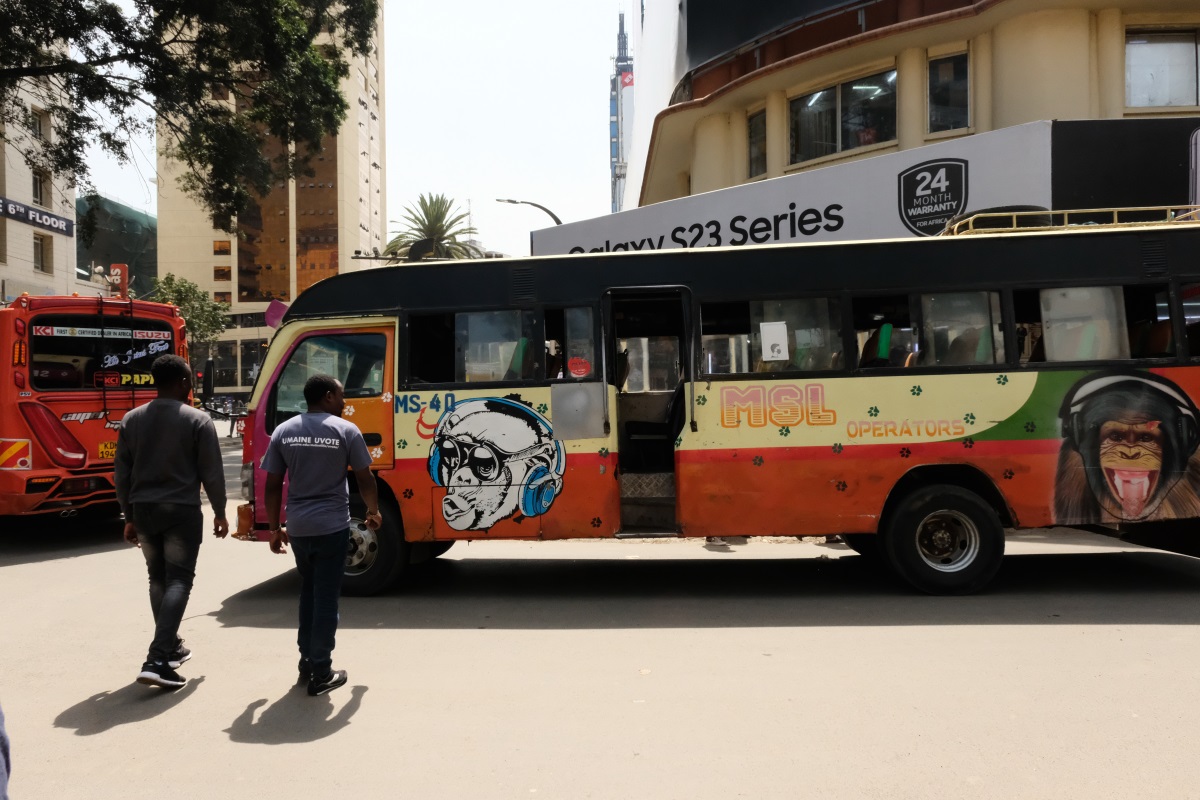
Between Cities
Moving between cities and regions:
- Kenya has a few domestic airlines which are generally safe and cheap. For example, living in Nairobi, you can get to the coast in 45 minutes for around $60. These airlines include Skyward, Jambojet, and Kenya Airways (also international). There are two airports in Nairobi, both of which do some domestic and some international, but in general Jomo Kenyatta International Airport is for international flights, and Wilson Airport is for domestic flights. Wilson is much closer to town, and security and check-in there are less of an ordeal, so if you're flying to the coast and choosing between similarly priced flights at these two airports, choose Wilson and enjoy your life.
- Matatus also go between towns and are generally the cheapest option. I sometimes ride these between towns.
- Kenya Railways is underrated. I use it to go back and forth to the coast. It's about $8 each way, or $30 if you ride first class, but most folks don't like it because it's about the same speed as Amtrak and takes a few hours. That said, you'll likely see giraffes, impalas, and other cool creatures out the window along the way.
Jomo Kenyatta International Airport (abbreviated JKIA or NBO)
When arriving at JKIA from abroad:
- At Customs, there will be lines for several different classes of entry: Kenyans, EAC residents, foreigners, diplomats, etc. The labels do not matter. Just go to the shortest line. If they try to make a big problem with your visa, go to the immigration office and pay $50.
- Leaving baggage claim, they'll try to make you put all your bags through another x-ray machine. If the line is short, just do it. If it's long and chaotic, try briskly walking through as if you know what you're doing.
- Don't accept help, including carrying bags, from anyone. If you need a ride to your hotel or other accommodation, use a rideshare app; the taxi drivers outside the airport doors typically charge double what you can get using an app.
When taking a departing flight from JKIA, you should have a car taxi drop you off; motorcycle taxis are not allowed at the airport, and parking is a pain. There will be four or five security checks:
- About a kilometer before the airport, you will get out of your car to walk through a building to the right with a metal detector and x-ray machine. Leave your bags in the car. Usually, you don't need to empty your pockets or remove anything from your person when walking through the detector, but you may need to send your phone through the x-ray scanner. When the metal detector goes off, ignore it. The guards usually don't care. Just keep walking out of the building to your car and continue toward the airport.
- After leaving your car, you will get in line to enter the airport. The guard at the entrance door will ask you which flight you are taking. Respond, "[Airline] to [destination]." Then, you will walk through a second metal detector and put your bags through an x-ray machine. You do not need to remove your laptop from your bag, empty your water, or remove your shoes. You will likely need to empty your pockets of any metal.
- After checking in and dropping off your checked luggage, you will get in line for a passport check. As upon arrival, there will be lines for several different classes of entry: Kenyans, EAC residents, foreigners, diplomats, etc. The labels do not matter. Just go to the shortest line.
- Finally, you will be at a normal airport security checkpoint. Everything is normal here with one pleasant exception: you don't need to empty your water bottle. If the guards ask you to empty it, politely and quickly apologize and tell them you will drink it, then move on.
- Depending on your destination country, you may need to pass through a final mini-security checkpoint at your departure gate.
Medical
As with any country, check the CDC Travelers' Health page for Kenya at least one month before you travel. When I moved, I got my Polio, TDAP, Meningitis, and Typhoid immunizations updated, and I also got a Yellow Fever vaccination. Honestly, I probably should have gotten my Cholera and Rabies vaccinations as well. Try to get the oral Typhoid vaccine instead of the injection; your immunity will last more than twice as long. At the time of writing, Nairobi does have COVID-19 shots available to the public.
Different people have different opinions on the malaria vaccine, which comes in the form of a pill that you take daily-to-weekly rather than a one-time injection. The CDC recommends you do it, especially if you go on safari. I don't know anyone who lives in Kenya who actually does take anti-malaria pills. Many of the different brands have unfortunate side effects, including fatigue, night terrors, and diarrhea. In Nairobi, malaria has almost been completely eradicated, and if you go to a doctor in Kenya feeling sick, a malaria test will likely be the first thing they order.
Nairobi has good medical care facilities, but you need to practice constant self-advocacy when seeking care. For example, if you've been in a waiting room for 45 minutes when the doctor or nurse told you it would be 15, flag down a nurse and politely ask where the doctor is so you can go find them yourself.
For most non-urgent medical care and lab tests, Nairobi Women's Hospital (NWH) is my favorite clinic. They're bad at electronic communication, but the wait time for walk-ins is usually short. Check-in at an electronic kiosk next to the front desk, walk to the waiting area for your appointment type (e.g., for lab testing, walk to the lab itself), and wait to be called.
For emergency hospital services, I recommend Aga Khan Hospital or MP Shah Hospital.
Pharmacies in Kenya are called "chemists." Medication prices relative to the U.S. vary. You can usually buy individual pills without buying an entire package.
Safety
Ensuring personal safety and security is a crucial aspect when moving to Kenya as an American. That said, I have never felt in danger in Nairobi. As with any city, the key to staying safe is by staying alert and practicing good common sense.
The U.S. State Department has a mostly permanent travel advisory for the country, and the details are crucial to traveling safely. Almost always, tourist destinations around Kenya, including most of the safari parks and larger towns on the Swahili coast, are safe. It is usually not safe to venture into Eastleigh or Kibera, the latter being the largest urban slum in Africa.
As a general rule, northern Kenya is less safe than southern Kenya. I'll give an overview of the relevant northern counties starting in West Pokot, the central county on the border with Uganda, and moving clockwise.
In West Pokot and Baringo counties, you will likely hear about violent clashes between police and Pokot people. I am not personally comfortable traveling to this area. If you are driving to Uganda, take the B1 highway through Busia near Lake Victoria.
Turkana, the county in the northwest corner of Kenya, is frequently labeled unsafe, but the reality is more nuanced. The new paved highway connecting Lodwar to South Sudan and massive international presence around the Kakuma-Kalobeyei refugee camp have brought a substantial security presence and dotted safe havens throughout the county. Interestingly, many local Turkana people do not consider themselves Kenyan. Likewise, many people from southern Kenya, including Nairobi, have never been to the North and are shocked when they see images depicting the poverty in the region: "I didn't realize people in Kenya still lived like that." Learning about the First and Second Mutai helped me better understand the historical context for the region when I lived in Turkana for three months.
Samburu and Marsabit, the two north-central counties adjacent to Lake Turkana, are famously beautiful, but take care when driving; police have struggled to control highwaymen in the region. I recommend bringing a burner phone and 10,000 KES, about $75, so that, if stopped, you can surrender some valuables without getting out of your vehicle.
I've never been to any of the counties bordering Somalia. The U.S. State Department prohibits travel there due to "kidnapping and terrorism."
The U.S. State Department also prohibits travel to several "Coastal Areas," but many of the coastal cities remain safe and wonderful vacation destinations. I'll talk about coastal travel advice in a later section.
Recreation and Leisure
Things to Do in Nairobi
In addition to great food, Nairobi has plenty of other fun adventure spots. Here is an incomplete list of my favorites:
- Karura Forest: central park vibes
- Nairobi National Museum and Snake Park: touristy museum plus a small zoo where snakes and lizards crawl on you and you hold a crocodile's tail while it hisses at you
- National Archives: pan-African art and history; entry fee is cash only
- Kenyatta International Convention Centre: skyscraper with a public roof with a view of the city
- Maasai Market: downtown outdoor marketplace to bargain for Kenyan trinkets like paintings, sculptures, and blankets
- Toi Market: large marketplace for clothes, groceries, and household items
- Cheche Bookshop and Cafe: my favorite bookstore with delicious cookies, and frequent host of community events
- Giraffe Center: feed a giraffe from your hands
- Elephant Orphanage: baby elephants; book weeks in advance or overpay for a tour company like Gracepatt
- Nairobi National Park: massive safari park in the city with wild lions, giraffes, rhinos, etc.
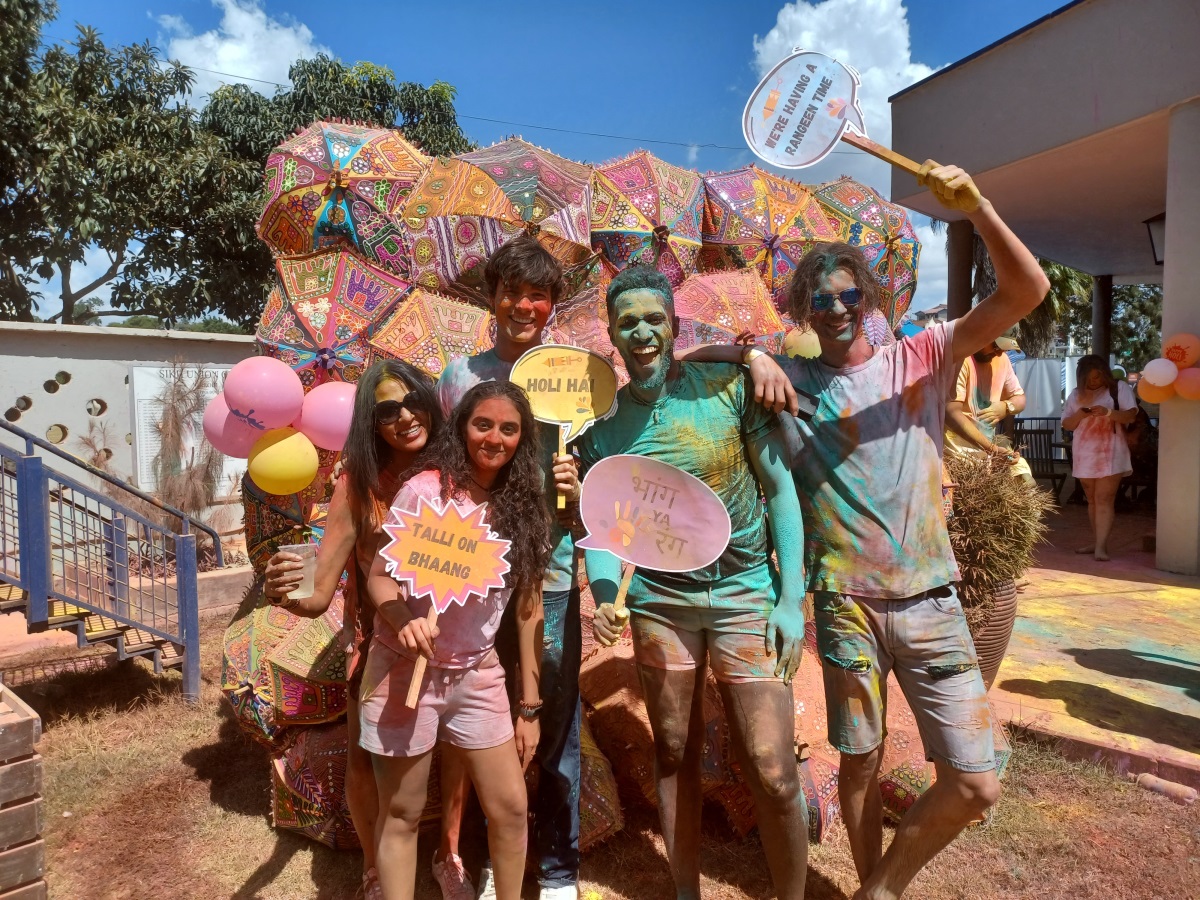
Adventuring Around Kenya
If you like hiking, join a hiking club! Groups of people ride in matatus to mountains around the country to enjoy hiking together, and the leaders plan everything for you. Probably the most popular option is Outdoorer, but ask around to be added to WhatsApp groups of other clubs. There are no subscription fees; hikes are all priced à la carte. Here is an incomplete list of my favorite day hikes:
- Longonot: For the best day hike in Kenya, hike up and around a dormant volcano crater for 360-degree views of Lake Naivasha and the Great Rift Valley.
- Ngong Hills: Enjoy a popular, peri-urban hike with views of Nairobi and Maasai land.
- Mackinders Quest, Mount Kenya: Tackle a strenuous hike that covers half of the hardest mainstream route up Mount Kenya.
- Sleeping Warrior: After circumnavigating the less-traveled crater, look at flamingos at nearby Lake Elementaita or hike the nearby Ugali Hills for an extra challenge. Hire local guides, bushmen of the Kenya Wildlife Service, to keep you safe from wild animals.
- Aberdares: This range features many beautiful hikes with waterfalls.
- Hell's Gate: Rent bicycles approximately two kilometers before reaching the northwest gate, and embark on a nine-kilometer cycling safari to the hot springs ("maji moto," literally "water fire" in Kiswahili) on the opposite side of the park. Before selecting a bike, perform a comprehensive test to ensure the tires are adequately inflated and the chain operates smoothly without skipping. I suggest exploring without a guide, but it's essential to maintain a safe distance from the wildlife and beware of flash floods in the slot canyons beyond the trail's end.
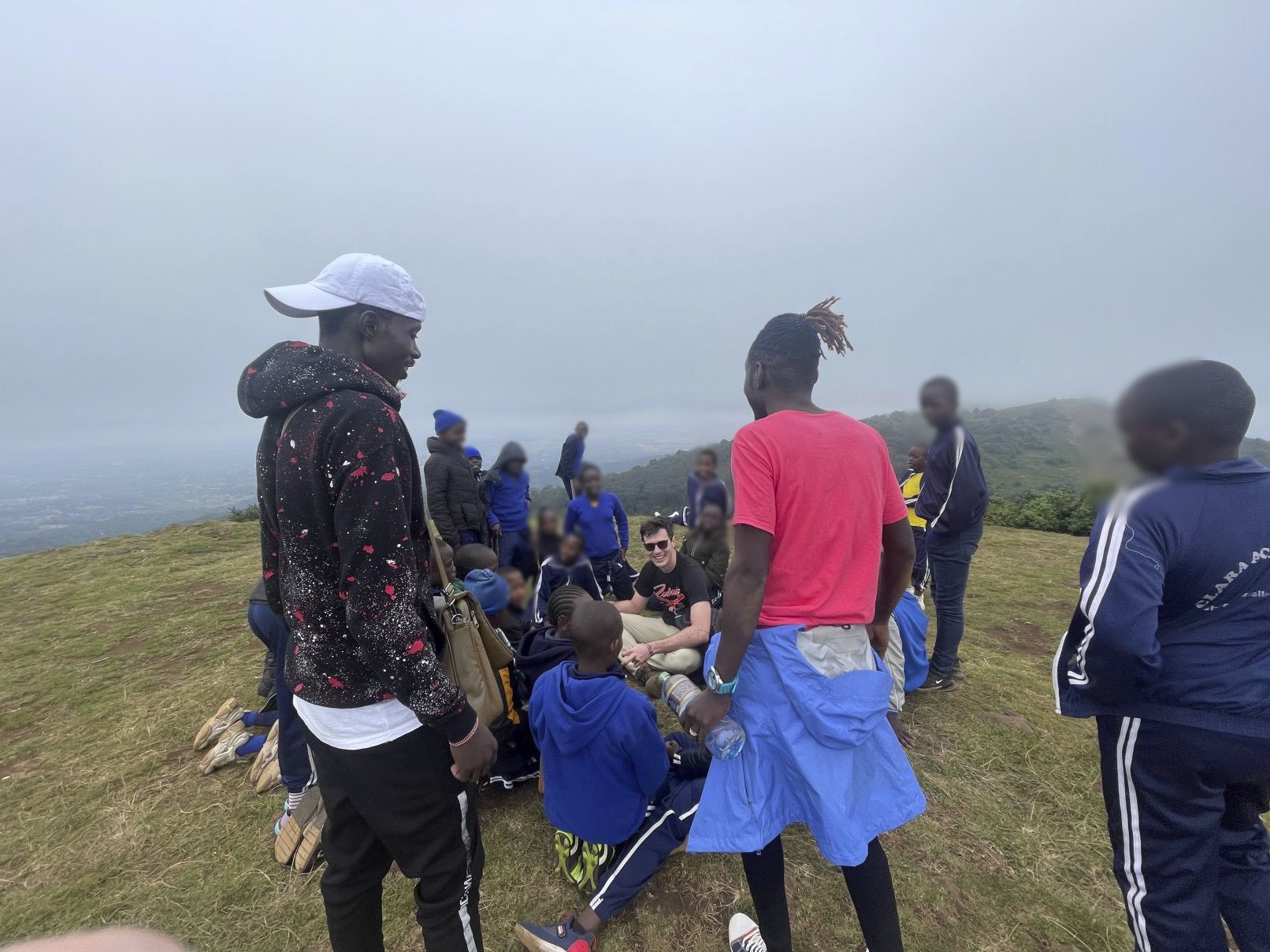
For adventures that require overnight stays:
- Lake Turkana: desert oasis with great stars at night
- Mount Kenya: tallest mountain in Kenya with several fun trails
- Mount Kilimanjaro: tallest mountain in Africa, just south of the border in Tanzania
The Swahili Coast is home to some of the world's most beautiful beaches. AirBnBs are generally better than hotels, and they often come with a private chef. Travel safely to:
- Kilifi or Diani by taking the train or plane to Mombasa and hopping on a bus at the train station
- Watamu by flying to Malindi and hiring a taxi
- Lamu by flying directly from Nairobi
Note that, in some towns, rideshare apps have low adoption, so be prepared to pay extra for taxis.
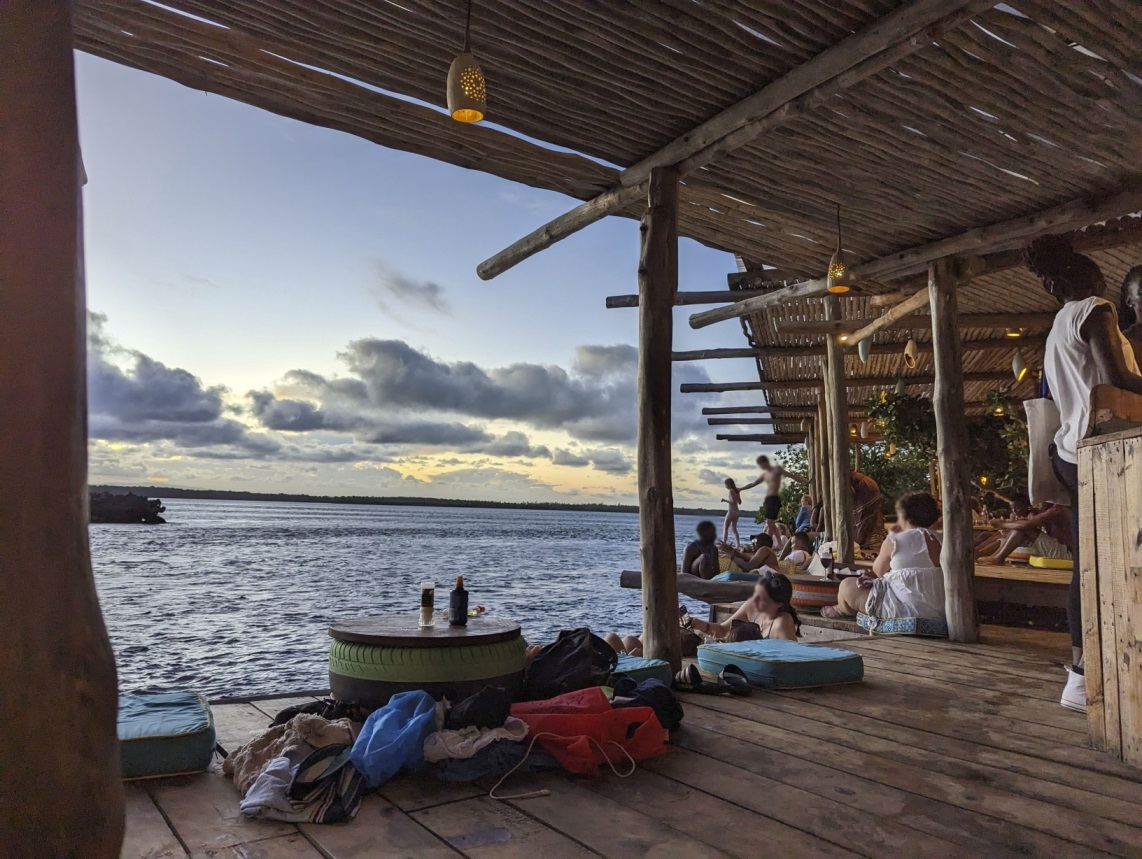
Recreational Substances
Miraa, also known as jaba and khat, is a legal stimulant commonly used in East Africa. The leaves are typically chewed during casual social gatherings for their mild euphoric and stimulating effects. Some companies process the leaves into a sweetened beverage called "jaba juice." Tobacco, alcohol, and caffeine consumption are also common.
The use, possession, and distribution of most recreational drugs are illegal in Kenya. These substances are classified as controlled or illegal substances under Kenyan law, and being caught with them can lead to serious legal consequences, including imprisonment. I do not endorse or condone any illegal behavior.
If you decide to engage in recreational drug use, especially with synthetic substances like MDMA, it is crucial to use test kits. I've never heard of anyone having any problems with natural drugs like cannabis or psilocybin mushrooms, but synthetic drugs can vary widely in composition and purity levels. Unfortunately, I am unaware of any local sources for reagent test kits in Kenya. It may be advisable to acquire them from abroad and bring them with you when traveling.
Bush weed, locally cultivated cannabis, is readily available. It is often considered less expensive and of lower quality compared to imported strains. Many recreational drugs in Kenya are indeed imported. In Nairobi, you can easily come across a variety of cannabis, sometimes referred to as bhang or banga, as well as a few strains of psilocybin mushrooms and MDMA. More niche or specialized substances are generally harder to find.
Safaris
Basics
In Kiswahili, "safari" literally means "journey" or "trip." I would recommend using a tour company to plan everything. My favorites are Expeditions and Bonfire. These are the important variables:
- Park: The Maasai Mara is the most popular and generally the best option if your goal is to see the most animals, but many other parks are also great, including Amboseli, Naivasha, and Nakuru. Nairobi National Park is also a great budget option.
- Guests: The number, age, and nationality of guests affect the price. Safari vans can comfortably seat up to seven passengers plus the driver. Kids' tickets are typically cheaper than adults'. Kenyan residents pay significantly less than foreigners for both the park entrance fees and hotel. However, if you have at least one resident in your party, you can usually get the hotel to extend the resident rate to everyone in the party.
- Vehicle: You can get a regular car, an open-roof safari van, or a Land Cruiser. I prefer the open-roof safari vans because the open roof makes the experience way better and Land Cruisers are needlessly expensive.
- Transportation from Nairobi: You can take public transport, like matatus, to and from the park or pay extra to be picked up in your safari car at your residence in Nairobi and driven to the park. Some particularly wealthy people fly, but they still need a car to pick them up at the arrival airstrip.
- Group vs. Private: Private safaris cost more than joining a group, but the benefit of privacy is that you get to decide how long you want to stay and look at a particular animal rather than negotiating the schedule with other passengers. Sometimes, safarigoers get tunnel vision trying to see the Big Five. Don't get sucked into this. It can be nice to stay and watch the cheetahs for an hour to see if they take off on a hunt. Many residents self-drive, but doing so means you likely won't have access to radio communication with all of the professional drivers in the park constantly telling each other where the animals are.
- Accommodation Location: Some camps are inside the parks, while others are located outside. Camps inside the park are more expensive, but you save time by not having to check in at the entrance gate every day. For some parks, like the Maasai Mara, you may wait at the gate for up to 45 minutes. For others, like Amboseli, checking in will likely take five minutes.
- Accommodation Type: There are generally three types of safari accommodations: regular tents, safari tents, and lodges, in increasing order of expense. Safari tents are my favorite; they are basically hotel rooms, complete with hot running water and electricity, but the walls are made of canvas instead of brick. All the safaris on which I've been provide nice meals and drinking water for free, but they overcharge for other drinks.
- Number of Nights: Most people go on safari for two to three nights. Unless you're going to Nairobi National Park, don't try to make your safari a one-day trip. You'll be exhausted, and you'll spend much of your time traveling to and from the park rather than enjoying the animals. If seeing a hunt or a particularly rare animal is important to you, you should plan to stay for a week or more.
In addition to the quoted price, make sure to budget for park entry fees, drinks, snacks that you'll bring with you from Nairobi, souvenirs, and 10% for tips. If you don't want souvenirs, close and lock your car windows as you approach the gate to avoid being swarmed by merchants. Sometimes they will pull open car windows and throw items inside before demanding you pay for them. Use the phrase "Sitaki. Asante," which means "I don't want anything. Thank you."
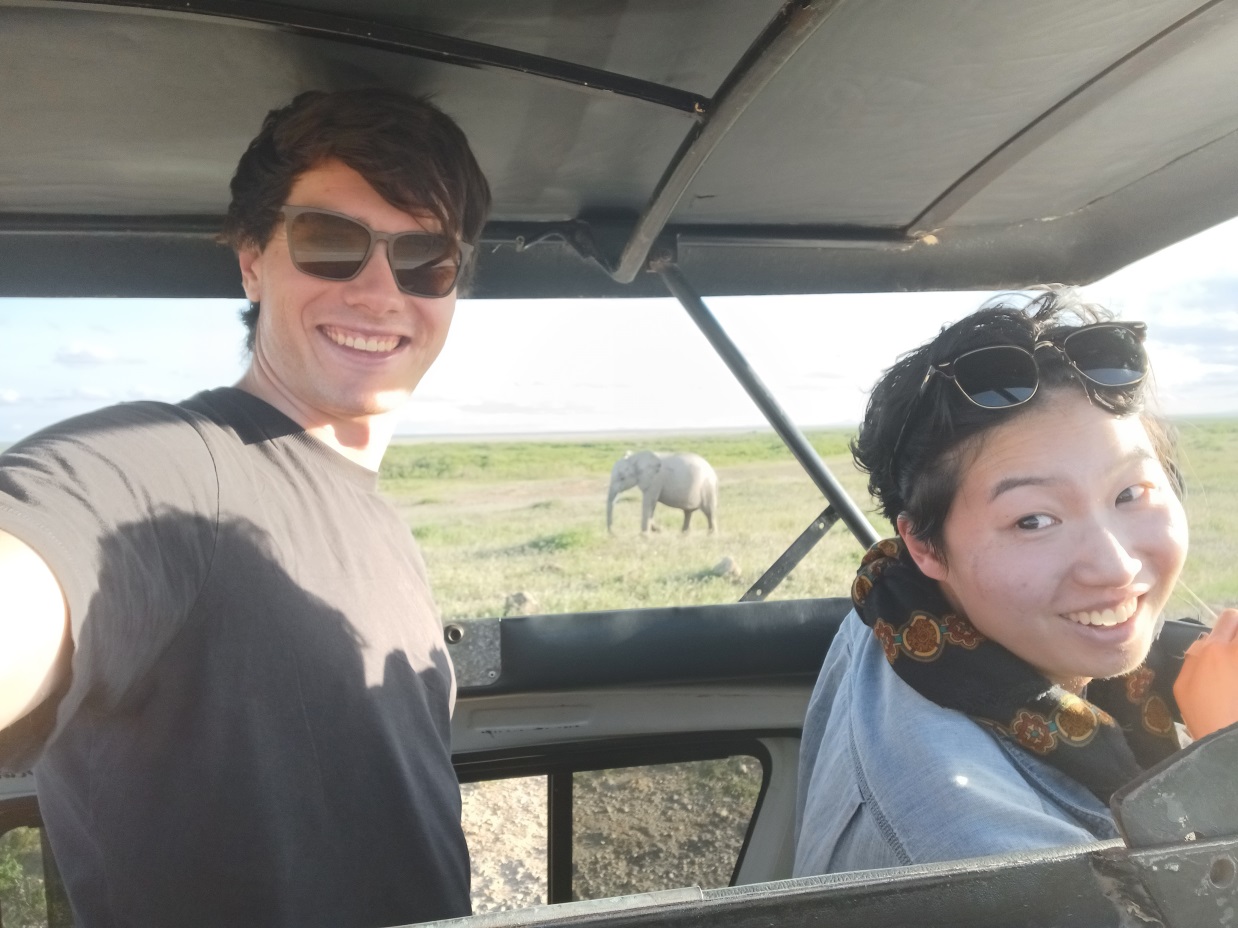
Parks
I have been on four safaris in Kenya:
- Maasai Mara is arguably the most famous park in Kenya. It's name comes from the Maa word for "spotted," a reference to the short trees that cover the park. The Mara is located on the southern border of Kenya, directly connected to the Serengeti in Tanzania. The park hosts the Great Migration, one of the Wonders of the World, annually. Upside: in my opinion, the Maasai Mara is the best park for spotting game. Downside: due to its popularity, it can get a little crowded, and the park rangers fail to stop the safari drivers from going off road.
- Amboseli is another Maasai park on Kenya's southern border. The name is a corruption of the Maasai word for "salty, dusty place." Upside: Amboseli is famous for its "tuskers," elephants with massive tusks, and its views of Mount Kilimanjaro are breathtaking. Downside: none.
- Naivasha and Nakuru offer two parks in one trip. Travel from Nairobi to Hell's Gate for a game drive or bicycle safari on day one, then stay near Lake Naivasha. On the second day, travel to Lake Nakuru for the rest of your safari. Upside: the lakes are beautiful. Downside: there's less diversity of animals, and no elephants in either park.
- Nairobi National Park is located in Nairobi, about seven kilometers south of the city center. Upside: it's budget-friendly and is the only park you can comfortably visit from Nairobi in less than one day, and it still has an impressive quantity of wildlife. Downside: it's smaller than most of the other safari parks and doesn't have elephants.